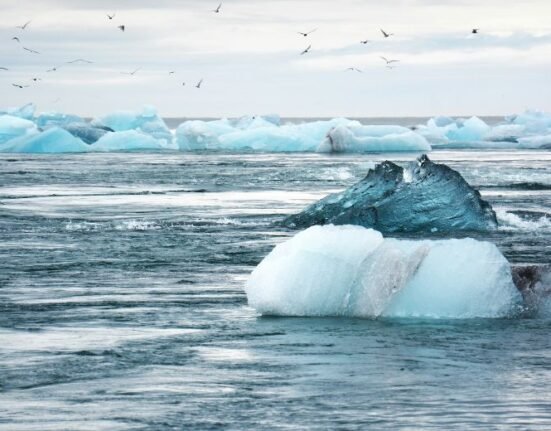HQ Team
June 19, 2024: Heatwaves are continuing to sweep across the world with “numerous record-breaking” high temperatures possible in the US, according to meteorological departments and weather services.
“A dangerous heat wave will continue this week over the Great Lakes, Ohio Valley, the Northeast and Mid-Atlantic. Numerous record-breaking high temperatures are possible,” according to the US National Weather Service.
Widespread daily records were likely for afternoon high temperatures and warm overnight lows, with some monthly records a possibility, according to an NWS statement. Heat index readings are expected to peak from 100 to 105 degrees in many locations.
Those without access to reliable air conditioning were urged to find a way to cool down. Record warm overnight temperatures will prevent natural cooling and allow the heat danger to build over time indoors without air conditioning. Conditions improve slightly over this weekend, it stated.
On the other extreme, a line of thunderstorms would develop out ahead of a cold front sweeping across the plains on June 18.
The Storm Prediction Center issued a Slight Risk of Severe Thunderstorms from parts of the Upper Mississippi Valley into the Mid Missouri Valley/Central Plains and Southern High Plains where scattered to severe storms are expected to produce large hail and damaging winds. A few tornadoes may also occur.
Asian region
The Asian region is also under the grip of severe heat waves. In northern India, heatwave to severe heatwave conditions prevailed in most states, according to India Meteorological Department.
“Maximum temperatures were in the range of 44-46°C over most parts of plains of north India and these were above normal by 5-8°C over the region,” according to a statement.
The highest maximum temperature of 47.6°C was reported at Prayagraj in East Uttar Pradesh state.
In Saudi Arabia about 14 pilgrims were killed during the annual Haj pilgrimage after suffering sunstrokes. Saudi Arabia saw temperatures reach 47 degree Celsius on June 16, with temperatures at least 1.5 to 2 degrees Celsius in Mecca and Medina.
Olympic Games in Paris
Severe heat may also affect the upcoming Paris Olympics during July-August period.
Leading heat physiologists Prof Mike Tipton and Dr Jo Corbett have warned that intense heat at the Olympics could lead to competitors collapsing and in worst-case scenarios dying during the July-August Games.
A ‘Rings of Fire’ report prepared by 11 Olympians, climate scientists and leading heat physiologists pointed out that there was an urgent need to listen to athlete voices and place greater emphasis on protecting athletes and the fabric of sport as climate concerns intensify.
“A warming planet will present an additional challenge to athletes, which can adversely impact their performance and diminish the sporting spectacle of the Olympic Games,” Dr Corbett, Associate Professor of Environmental Physiology in the School of Sport, Health and Exercise Science at the University of Portsmouth, said.
“Hotter conditions also increase the potential for heat illness amongst all individuals exposed to high thermal stress, including officials and spectators, as well as athletes.”
Hottest year streak continues
2023 was the hottest year on record according to the EU’s Copernicus Climate Change Service and 2024 has continued this streak. April 2024 was warmer globally than any previous April in the record books, said experts at Copernicus.
Lord Sebastian Coe, President of World Athletics and four-time Olympic medallist said: “For athletes, from smaller performance-impacting issues like sleep disruption and last-minute changes to event timings to exacerbated health impacts and heat-related stress and injury, the consequences can be varied and wide-ranging.
“With global temperatures continuing to rise, climate change should increasingly be viewed as an existential threat to sport.”
Jamie Farndale, a rugby 7s player for Great Britain said it was not in an athlete’s nature to stop “and if the conditions are too dangerous I do think there is a risk of fatalities.”
In 2003 in July and August – the same time as the upcoming Olympics will be held – a record heatwave resulted in more than 14,000 excess deaths in France.
From 1998-2017, more than 166,000 people died due to heatwaves, including more than 70,000 who died during the 2003 heatwave in Europe, according to the WHO.








